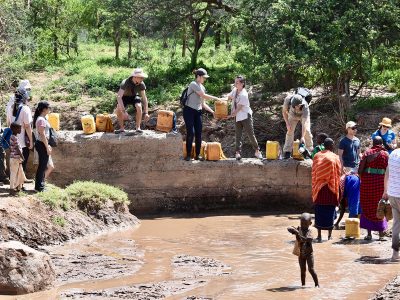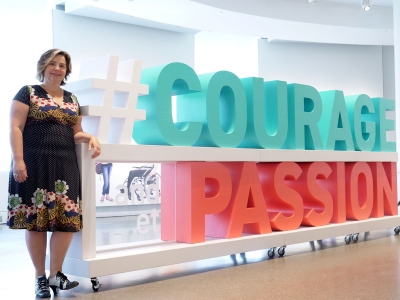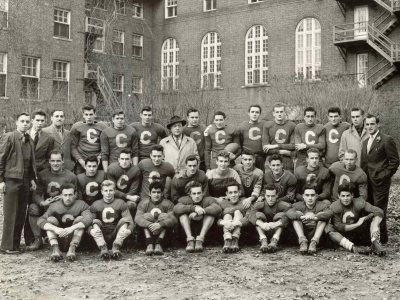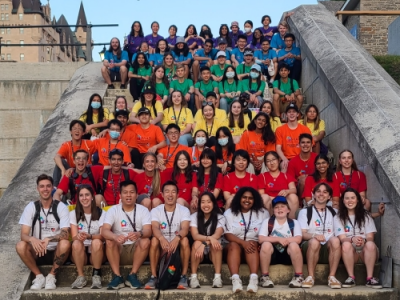By Elizabeth Kane
From June 16 to 20, Carleton University celebrates convocation as more than 5,400 graduates from the class of 2025 receive their degrees. It is a grand finale to an academic journey years in the making, honouring the dedication of all who cross the stage.
To recognize the exceptional academic achievements of its students, Carleton awards prestigious medals to celebrate the commitment of Ravens who have excelled in their studies.
Below are the inspiring stories of eight medal winners from the class of 2025.
Governor General Silver Medal
Jessica Delorme-Po, Bachelor of Information Technology
Jessica Delorme-Po had already completed an undergraduate degree when she decided to return to school to enroll in Carleton’s Bachelor of Information Technology. She was drawn to the program’s variety of courses and the opportunity to work in numerous industries.
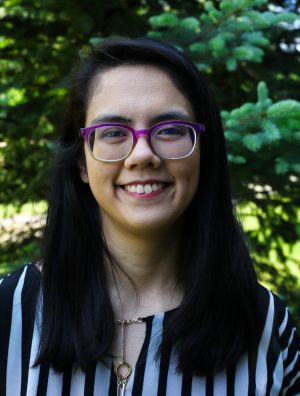
Jessica Delorme-Po
“The information technology program is really good,” she says. “You get to explore a lot of different fields.”
Among her favourite courses were programming classes.
“At that time, I had zero experience with programming,” she says. “It turns out I really enjoy programming and am good at it.”
Reflecting on her time at Carleton, Delorme-Po notes she enjoyed the practical experience her projects offered, as well as exploring innovative topics like artificial intelligence.
Looking ahead, Delorme-Po plans to work in her field of study.
Her advice to students is to take advantage of the work experience programs offered to university students such as the co-op program.
“Employers are looking for work experience for entry-level jobs, which the co-op program gets you,” she says. “If your programs offer it, sign up and take advantage of the opportunity.”
Keaton Lee, Bachelor of Computer Science (Honours)
Keaton Lee was drawn to Carleton’s Computer Science program for its Industrial Applications Internship option – which offers real-world industry experience from the beginning of first year. The program provided him the opportunity to split his time between full-time studies at Carleton and part-time work as a developer at Shopify.
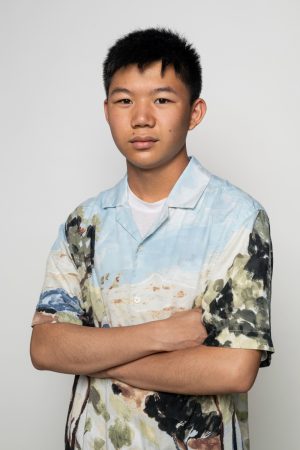
Keaton Lee
“I look back fondly on my placements across disciplines,” he says. “From front-end and back-end development to security, data and applied machine learning engineering—each placement exposed me to a new and exciting set of challenges.”
Beyond his program, Lee was very involved in activities such as competing on Carleton’s fencing team, representing Carleton at the Dragon Boat World Championships and serving as president of the Carleton Cybersecurity Club.
“Each experience—academic, athletic, and extracurricular—played a meaningful role in shaping who I am today,” he says.
His undergrad now complete, Lee will begin his graduate studies in Computer Systems under UC Berkeley’s EECS department.
Lee advises future students to embrace challenges when working to achieve their goals.
“The map I followed was a maze of all the paths I tried and retraced—but I think there’s beauty in that,” says Lee. “Some of the best parts of my time at Carleton came from the paths I never expected to take.”
University Medal for Outstanding Graduate Work – Doctoral Level
Jessica Davis, PhD, International Affairs
Jessica Davis had already established a career in the intelligence field when she decided to pursue research through a PhD in International Affairs. Informed by her work experience, she was drawn to the research and policy engagement being done by faculty members in the Norman Paterson School for International Affairs.
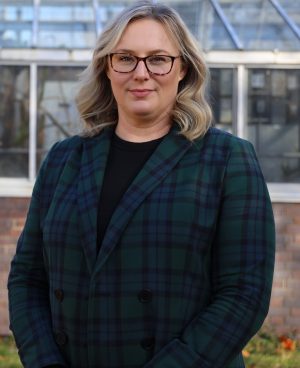
Jessica Davis
“I was very interested in doing research that was really policy relevant and was looking for a place that was making real change in government policy based on research,” she says. “It was the right fit.”
Davis’s thesis focused on counter-terrorist financing, the tools available to governments to fight this kind of illicit finance, the effectiveness of these measures and human rights impacts. Her groundbreaking work was recognized with the prestigious $50,000 Social Sciences and Humanities Research Council (SSHRC) Talent Impact Award.
“It was unexpected and so validating to see research that I feel so passionate about recognized on a national stage.”
Looking ahead, Davis will be turning her research into a book and continuing to work in academia.
For future students that want to dive into research through a PhD, Davis says to know what they want to study – but maintain some flexibility.
“Even though I knew from my career experience the area that I wanted to study, there was still a lot of room for refinement and nuance,” says Davis. “Do not be scared of the refinement process – it’s a really important step.”
University Medal for Outstanding Graduate Work – Master’s Level
Erica O’Neill, Master of Science, Statistics
After completing an undergraduate degree in Biology, Erica O’Neill decided to pivot in her master’s to studying Statistics. Initially she was hesitant about the academic transition, but encouraging words from a professor helped her to make the leap.
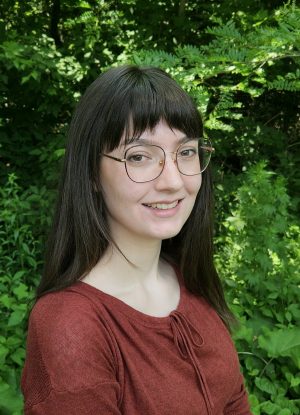
Erica O’Neill
“I was excited and felt really supported by the people around me,” she says. “It seemed like it was possible and so I went for it.”
Her master’s research involved building a statistical framework to help public health officials determine the right approach for assessing the human health risks of chemicals.
The experience was a good match for her co-op placement with Health Canada offering statistical analysis for projects focusing on chemical exposure and the environment.
“One of my objectives going into the master’s degree was getting work experience,” she says.
“The research that I was able to be involved with through the co-op was really fabulous.”
Now that her master’s is complete, O’Neill plans to continue in a full-time role at Health Canada.
Her advice to future students is to not be afraid to reach out.
“Building connections is so important and it can reveal so many potential paths forward that you might not have known about,” she says. “Talk to people, ask your questions. You have much more support than you might realize”
Chancellor’s Medal
Ajay Sandhu, Bachelor of Computer Science (Honours)
An enthusiastic student of math and computer science in high school, Ajay Sandhu decided to enroll in the Bachelor of Computer Science degree at Carleton, focusing on the Algorithms Stream.
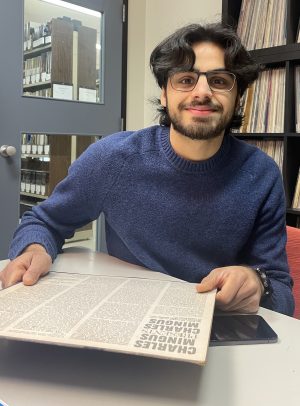
Ajay Sandhu
He particularly enjoyed the academic environment his program offered.
“The stream’s courses are taught by professors who have the topic of the course as their main research interest and those classes tend to be quite small,” he says. “It was a cool experience.”
While his main focus was on computer science, he also made time to pursue a minor in Music, having played piano and saxophone prior to university.
While a major departure from his core studies, it was well worth the leap according to Sandhu.
“It can be kind of intimidating to go into a class where have to perform in front of people who are all quite talented,” he says. “So I took a risk there, and it was worth it.”
During his undergrad Sandhu also completed co-op placements, gaining hands on experience working at a medium-sized software company.
“In that sort of environment, you’re thrown in the deep end and you learn a lot,” he says.
With his undergrad complete, Sandhu as already begun his full-time role as a software engineer.
His advice to future students is to take risks.
“Put yourself into classes, try out for teams or get into social environments, even if you don’t feel as confident as you would like,” he says. “In the long run, there’s very little downside and you may regret it if you don’t try.”
Michael Shaikhet, Bachelor of Science (Honours), Biochemistry
Michael Shaikhet knew he wanted to pursue a career in the medical field. His keen interest in how things worked at the molecular level drew him to pursue a Bachelor of Science in Biochemistry.
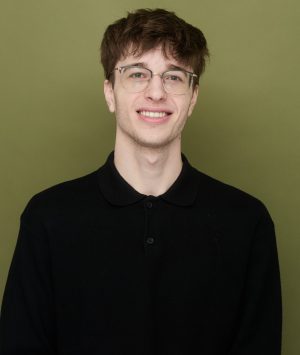
Michael Shaikhet
A highlight of his program was the hands-on experience provided by research internships he completed each summer. Provided by the Dean’s Summer Research Internships and Undergraduate Student Research Awards programs, his internships focused on subjects as varied as developing a novel pesticide alternative to creating a targeted approach to killing cancer cells.
“It was great to apply the techniques I had learned in the lab to help solve real world problems,” he says. “I was able to be a part of beneficial studies and be involved in a few publications.”
Out of the classroom, Shaikhet served as the president of the Chemistry and Biochemistry Society. A Thesis Night event drew more than 100 students to listen to professors pitch their research.
“A lot of students may be too nervous to get involved in research and that can create mental barriers,” he says. “The event created a very welcoming environment and some students from Thesis Night are now working in those labs.”
Following graduation, Shaikhet will be completing his last research internship, before starting medical school at the University of Toronto in August.
He recommends future students make the effort to foster connections with others on campus.
“Getting involved with different groups and meeting new people can really elevate your experience at Carleton,” he says. “By doing that, I had a great time because it felt less like just school and more like a community.”
Sam Haskins, Bachelor of Computer Science (Honours)
Passionate about computing since childhood, Sam Haskins decided to pursue a Bachelor of Computer Science at Carleton.
Focusing her degree on the Computer and Internet Security Stream, Haskins dove into core classwork on network applications, operating systems and cryptography – as well as engaging electives.
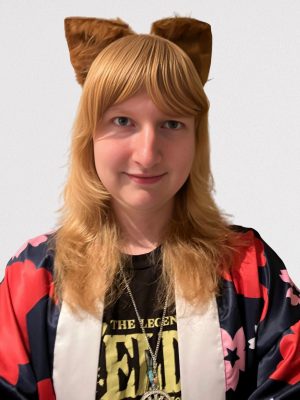
Sam Haskins
“I enjoyed the computer science and adjacent electives I took like Introduction to Computer Game Design, Natural History of Ontario and a robotics course.”
As part of her degree, Haskins completed four co-op terms with a cybersecurity consultancy firm, providing her with work experience and insight into the industry. During this time, she presented research on card reader systems at a major global hacker conference.
“That was very cool,” says Haskins. “I still have my speaker badge, and I consider it one of my biggest achievements.”
With her degree complete, Haskins has already begun a full-time job working on hardware security modules.
“The role has aspects of applied cryptography and cybersecurity,” she says. “I am really enjoying it so far.”
Reflecting on her experience at Carleton, Haskins advises future students to carefully consider the classes they choose during their degree.
“Put more effort into course selection than you think is reasonable,” she says. “It really makes a difference.”
President’s Medal
Pamela Wolff, Bachelor of Arts, Psychology
As the faculty advisor to interdisciplinary science students, Chemistry Professor Pamela Wolff was inspired by the many different courses her students were taking when she decided to enroll in a course on the psychology of motivation. There was only one problem – she needed a prerequisite.
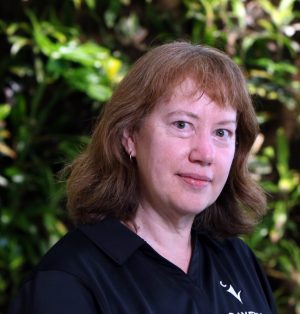
Pamela Wolff
“I thought a course on the psychology of motivation would be really relevant to me as a teacher,” she says.
After completing the prerequisite, she discovered that the high demand for the class she wanted meant that she would have to enroll as a psychology student. Now, 19 years later, she will be receiving her Bachelor of Arts, Psychology at convocation.
“It has really informed a lot of my teaching – experiencing what it feels like to be a student was quite eye opening,” she says. “As faculty, we’ve all been undergrads, but we don’t always remember what it was like.”
Her academic experience, both as a faculty member and recent student, will help inform her future plans to volunteer in an educational capacity as she prepares for retirement at the end of the year.
Her advice to future students is to make plans to help achieve their goals but remember to be flexible.
“You’ve got to make plans for it, but remember you’re human,” she says. “So, leave enough flexibility in your plans that you’ve got a bit of time for yourself programmed in.”
Tuesday, June 17, 2025 in Convocation, Convocation 2025, Student Experience
Share: Twitter, Facebook
